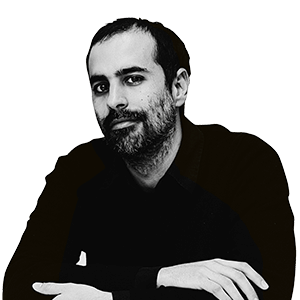"During the Process, the leaders of the Spanish Transition would have sought consensus and made compromises."
Alberto Rodríguez presents the series about 23-F 'Anatomy of a Moment' at the San Sebastián Film Festival.


Special Envoy to San SebastiánThe Spanish transition to democracy narrated as a thriller fast-paced with the epicenter in the February 23 coup. This is the feeling it conveys Anatomy of an instant, the four-part series directed by Alberto Rodríguez and produced by Movistar+ that premiered at the San Sebastián Film Festival. Inspired by the book of the same name by Javier Cercas, the series focuses on three key figures, the only members of Congress who didn't duck in Congress on February 23rd when the military started shooting: the Secretary General of the Communist Party, Santiago Carrillo (Eduard Fernández); the Prime Minister, Adolfo Suárez (Álvaro Morte); and General and Vice President Manuel Gutiérrez Mellado (Manolo Solo), to whom the first three episodes are dedicated; the fourth chronicles the trial of the military coup leaders.
Despite the focus on February 23rd, the series's view of the characters is panoramic and spans the end of Franco's regime and the Transition, analyzing the complexity of a group of men (Suárez, Carrillo, and Gutiérrez Mellado) who are considered traitors by their own people. "Cercas already says it in the book: they betray the past to build the future," says Rodríguez. "The antagonists of the series are the coup plotters, but Suárez betrays Francoism when he legalizes the Communist Party, and Carrillo betrays the communists when he accepts things that communists cannot renounce." "But the Transition was impossible without everyone giving up something," notes Fran Araujo, the series' scriptwriter and executive producer. And Rafael Cobos, Rodríguez's regular scriptwriter, clarifies that, in the context of the series, traitor It's not a negative term: "Knowing the high price you're going to pay, betraying the place you come from because you know it's necessary to move forward requires a courage that's difficult to assume."
Even so, Rodríguez emphasizes that there is "very little nostalgia" in the series and that what it tries to do is "dismantle a certain epic with which certain discourses are usually erected," even through a sense of humor. "We wanted the series to be entertaining and playful, but containing the story we wanted to tell," insists the director, who had to face a "highly complex" shoot in the Congress of Deputies, where they only had three days to film – day and night – and at some point 750 people were working on the production. "The big problem is that, since the 1980s, Congress has been modernized a lot and computers and microphones have been introduced, which had to be removed, and the upholstery on the seats also had to be changed," he explains. "And all of this had to be able to be reversed very quickly, in case an emergency full house was called."
From a contemporary perspective, it is inevitable to wonder how the three great protagonists of Congress would fit into the polarized Spain of 2025.Anatomy of an instant, who despite coming from opposing sides—Suárez and Gutiérrez Mellado from Franco's regime, Carrillo from republicanism and communism—put aside their differences and achieved goals that were unthinkable at the time. Or how, for example, the political leaders of the Transition would have acted during the Process. "They probably would have sought consensus, which is the only way to solve things," says Rodríguez. "And they would have made compromises," adds Araujo. "You have to give up part of what you want to reach a common point of agreement." The problem, notes series producer José Manuel Lorenzo, is that "democracy has changed a lot and is no longer that. Now the law of the strongest prevails, which is an enormous loss of democratic value."
